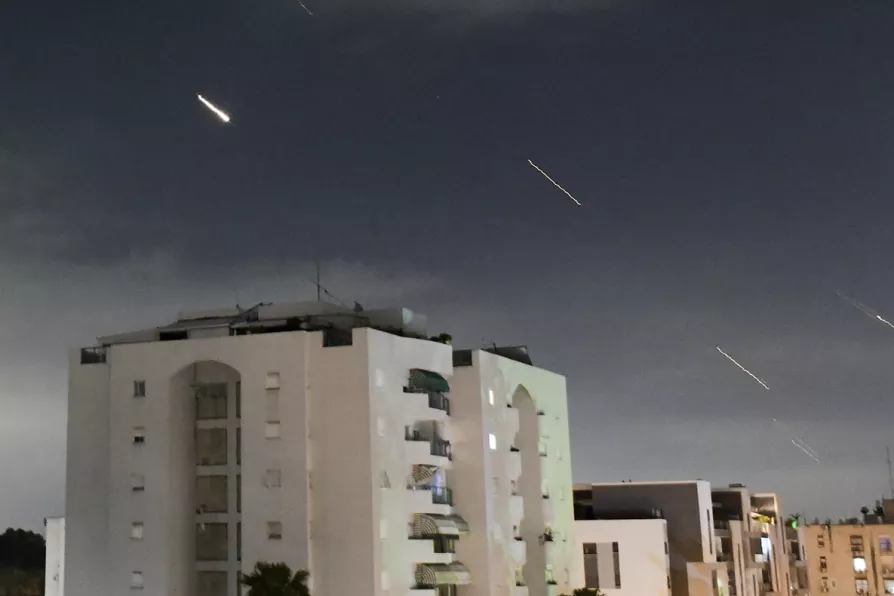
 Israeli Iron Dome air defence system launches to intercept missiles fired from Iran, in central Israel, Sunday, April 14, 2024
Israeli Iron Dome air defence system launches to intercept missiles fired from Iran, in central Israel, Sunday, April 14, 2024
THE risk of catastrophic war in the Middle East is real. Western governments, including Britain’s, calling on Israel not to spark such a war have the means to force it to comply and must be made to use them.
Israel is to blame for the escalation that saw Iran launch 300 drones against it over the weekend. Israel’s bombing of the Iranian consulate in Damascus, which killed 11, was a direct attack on Iranian territory under international law.
It was a lawless act which the British government has yet to condemn. It was also a middle finger raised to Israel’s allies in the US-led bloc, since Washington has urged Israel to avoid action likely to turn its genocidal assault on Gaza into a wider regional war.
Indeed, it is hard to interpret other than as a deliberate bid to provoke such a war. Israel’s motivation for such recklessness has nothing to do with any alleged Iranian threat.
Not one life was lost in Iran’s retaliatory action to the destruction of its consulate, making Foreign Secretary David Cameron’s attempt to portray it as disproportionate absurd.
Cameron says the story would have been very different had the drones not been shot down, by Israel but also by the United States, Britain and France: but that only underlines the layers of protection provided to Israel by its international backers (in stark contrast to their refusal to do anything to protect the people of Gaza).
That combines with its own effective defence system — and, as many analysts have pointed out, Iran choosing a form of retaliation that gave hours’ notice and guaranteed almost all its drones would be shot down.
That was the act of a country which cannot allow the flattening of its consulate and killing of its citizens to pass unremarked (a point Cameron struggled to answer when challenged by Sky News’ Kay Burley) but is also concerned to avoid a wider war. That is not to portray Iran’s theocratic regime as motivated by humanitarian or anti-imperialist concerns, but to recognise the reality that there is only one country in the region currently trying to set it on fire — and that country is Israel.
Benjamin Netanyahu is not having a good war but is even more frightened of peace. Six months in, Israel has killed more than 34,000 Palestinians, most of them women and children — but it has not militarily defeated Hamas.
The bloodbath has outraged almost the whole UN, seen even the US, fearing for its ability to maintain its traditional Middle Eastern alliances, decline to veto a ceasefire resolution, and derailed the normalisation of Israel’s relations with Arab states, a diplomatic priority of recent years. Hardly any hostages have been rescued, and opposition to a war clearly not being fought with their return or even survival in mind has brought together thousands of Israeli citizens on the streets, protesting for a deal to see them returned and for elections.
Those elections would likely see Netanyahu ousted, and quite possibly imprisoned given ongoing legal action against him. His only argument to postpone them is that elections cannot take place when the country is at war: expressed, now, in efforts being made to widen that war whatever the consequences.
Britain and the US, which have armed Israel to the teeth, can stop doing so. An end to the flow of arms would stop the Israeli war machine in its tracks: an avowal that we recognise its attempts to start a war with Iran and will not support it in any such conflict would force it to draw back.
British political leaders already have blood on their hands for facilitating Israel’s genocide in Gaza and its ever-advancing land grab in the West Bank. Their guilt would be all the greater if they facilitate its pursuit of a wider Middle East war. We need an arms embargo — now.














